Every Year Russia Beats the Nazis One More Time
There is one day when it never rains in Moscow, a day when Russia’s air force literally shoots down rain-bearing clouds with a chemical agent to reinforce the spectacle.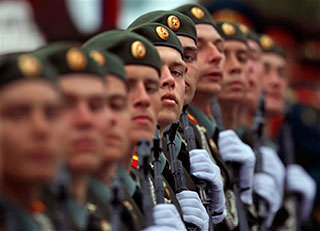
TULA, Russia — Russia is not known for good weather. However, there is one day when it never rains in Moscow — May 9, Victory Day. On that day, Russia celebrates the defeat of Nazi Germany in 1945. It remains the most important holiday in post-Soviet Russia, an opportunity for Russians to relax with their families and show respect for a generation of war veterans who are steadily dying out.
Victory Day is also important to the Russian state, which uses it as an opportunity to display its military might. Soldiers parade with military equipment through Red Square while airplanes and helicopters fly overhead. To reinforce the spectacle, Russia’s air force literally shoots down rain-bearing clouds with a chemical agent consisting of silver iodide, bare ice and finely divided cement before they can reach Moscow. This year, President Vladimir Putin, 14,000 parading soldiers, and Russian and international guests stayed dry once more.
The intervention is less beneficial for the areas surrounding Moscow. The clouds that are diverted from the capital are pushed to the hinterland. “It always rains in Tula on Victory Day,” says Dmitry Naydenov, a 26-year-old inhabitant of that industrial city 110 miles south of Moscow. On the morning of this Victory Day, however, the sky is blue and the mood is peaceful. A few thousand inhabitants of the “Hero City” Tula, which received the highest Soviet award for resistance against the National Socialists in World War II, have gathered on central Lenin Square. Lenin still stands tall in front of the city administration’s building, and commercials for McDonald’s and local stores on the large screen run on in spite of the solemn occasion.
The square itself has been turned into a large stage for a couple of hundred parading troops, guests of honor, veterans and the city’s political leaders. At exactly 10 a.m., the parade begins. It is much more modest than the one in Moscow, but it imitates its style and ritualized procession. In Tula, troops from the local garrison walk past the statue of Lenin, not the body itself, which rests in its Moscow mausoleum. The army band plays, and the governor of the Tula region, Vladimir Gruzdev, thanks the veterans for assuring the freedom of future generations. After the disastrous Soviet losses of the war’s first months, Tula withstood the rapid Nazi advance in the winter of 1941. Newspapers and popular history books still call Tula the “bastion of defense for Moscow,” where the Nazi invasion met the beginning of its end.
Under Putin, victory against the National Socialists has taken on a much larger public significance than under Boris Yeltsin. It has become a veritable founding myth for contemporary Russia. In a recent speech that was consistent with those of his first two presidencies, Putin expounded on the significance of the triumph in today’s world, deriving Russia’s right to be heard on the global stage from the defeat that the Soviet people brought upon fascism. He stressed “that strict respect for international law, state sovereignty and the independent choice of each people is one of the crucial guarantees for ensuring that the tragedy of World War II never happens again.”
One may interpret Putin’s brief discussion of international politics as a jab against global powers advocating intervention in Syria. He has also been unhappy about international criticism of the Russian government’s handling of protests against his third term as president. On May 6, the opposition’s “March of Millions,” in which as many as 60,000 people participated, ended in scuffles between the police and demonstrators. The Interior Ministry’s special OMON riot police arrested the leaders of the protest and hundreds of participants. The demonstrations continued on the day of Putin’s inauguration, resulting in a total of 750 arrests. Putin’s inaugural drive from his White House office to the Kremlin went through streets that had been cleared of all bystanders, preventing the media from capturing any negative images.
More important however is the symbolism of Victory Day. Shortly after Putin’s inauguration in the beautiful halls of the Kremlin, he appeared as supreme commander of the Russian armed forces. Within a few days, then, Putin combined two highly ritualized appearances in the traditional seat of centralized power, thus marking the symbolic beginning of a new era.
In Tula, however, Putin’s Victory Day appearance and the scattered protests against him by communists and liberals in downtown Moscow appeared very far away. After the parade, the city administration welcomed veterans in the Tula Kremlin with a snack — the traditional Russian kasha and the 100 grams of vodka that soldiers received during the war. Children and adults congratulated veterans decorated with Soviet medals and gave them flowers. One elderly lady told me she worked during the war in a kolkhoz — a collective farm — so she could receive food and that she hoped I would never see war during my lifetime.
Nearby, a group of enthusiasts restored wartime cars and guns, and young and middle-aged men in wartime uniforms stood by the vehicles and had their pictures taken. One of them, Aleksandr, explained that they gathered the vehicles from all over Russia and Eastern Europe. A howitzer thrown out of a second-floor window in Tallinn, Estonia, he told me, found its way to Tula. Farther down the road, on Victory Square, a youthful guard of honor marched up and down in front of the monument, while a few hundred cyclists gathered for a “bike ride to the places of wartime glory.”
Shortly after they rode off, the rain began. It took longer than usual to arrive, but did so with a vengeance. A flash of lighting illuminated the sky, and the loud thunder that resulted set off numerous car alarms. People fled indoors. There, they gathered with their families to barbecue. At our dinner table, politics came up briefly, with Naydenov’s family mostly agreeing that Putin’s speech appeared somewhat uninspired and that the military hardware shown in Moscow had been more exciting in past years. After dinner, everyone watched a comedy that made fun of politicians and Putin in particular.
Your support matters…Independent journalism is under threat and overshadowed by heavily funded mainstream media.
You can help level the playing field. Become a member.
Your tax-deductible contribution keeps us digging beneath the headlines to give you thought-provoking, investigative reporting and analysis that unearths what's really happening- without compromise.
Give today to support our courageous, independent journalists.
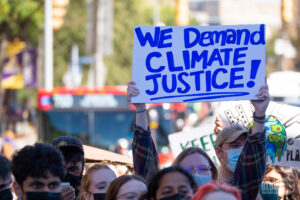


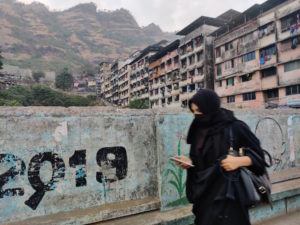
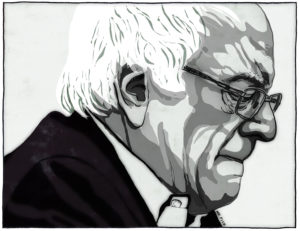
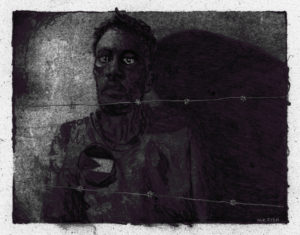
You need to be a supporter to comment.
There are currently no responses to this article.
Be the first to respond.